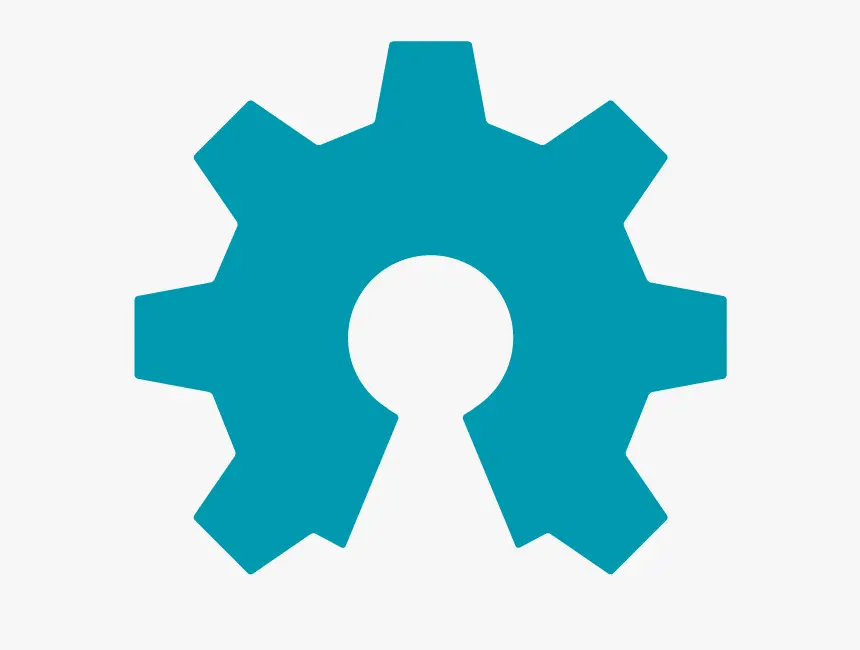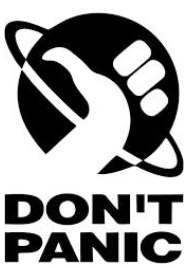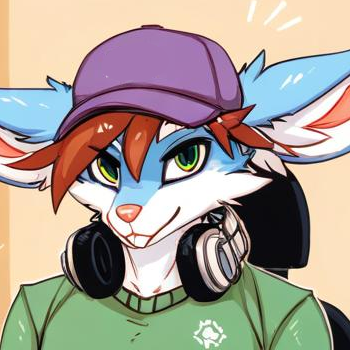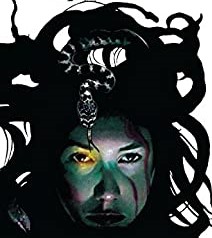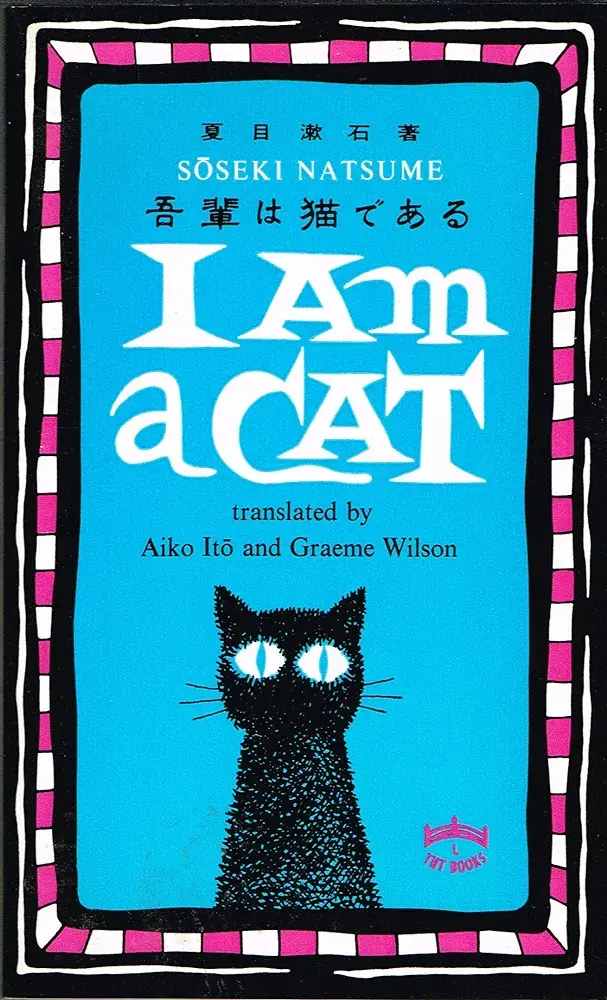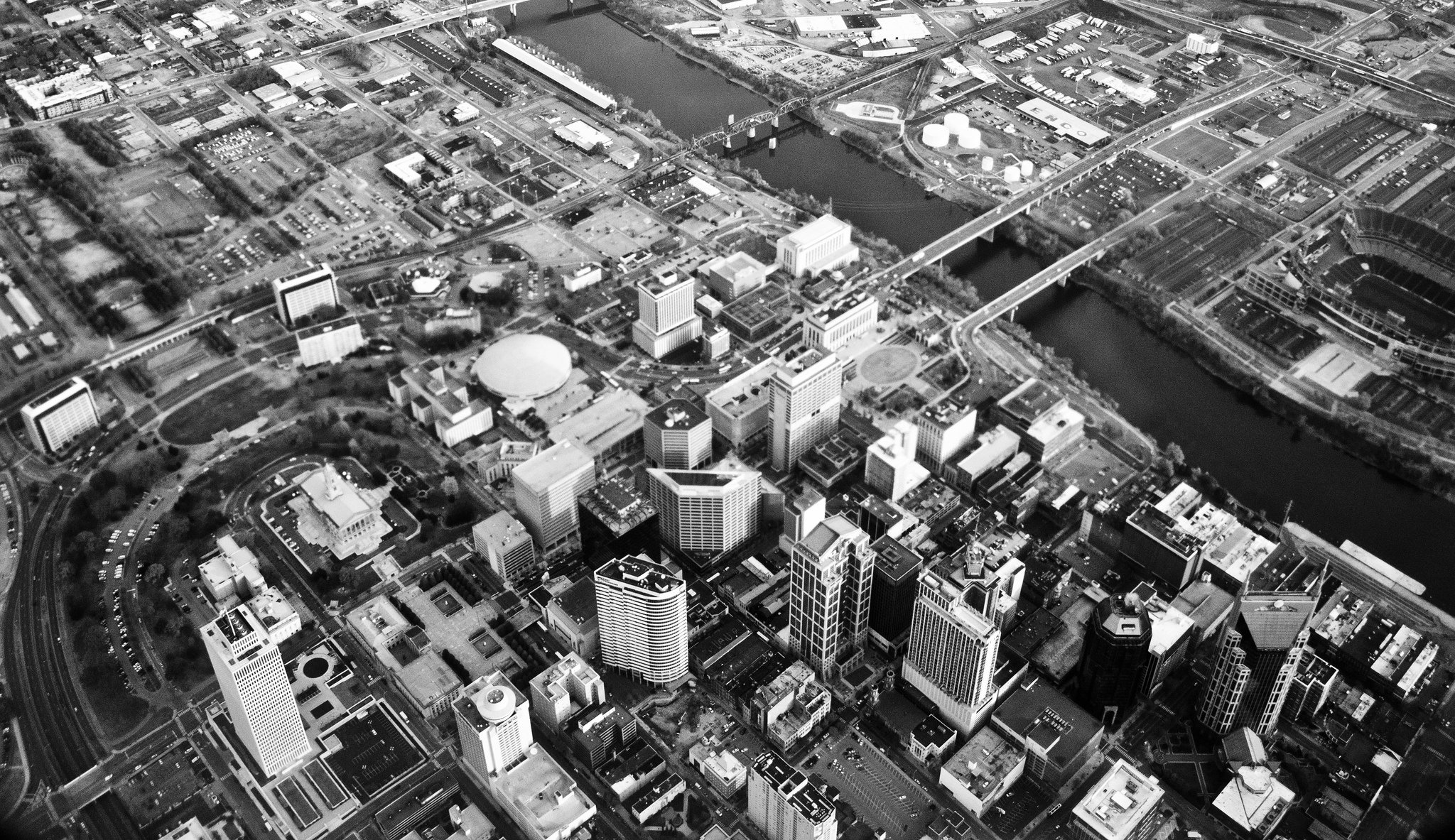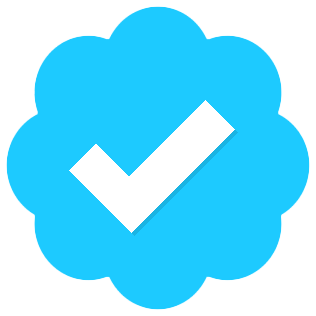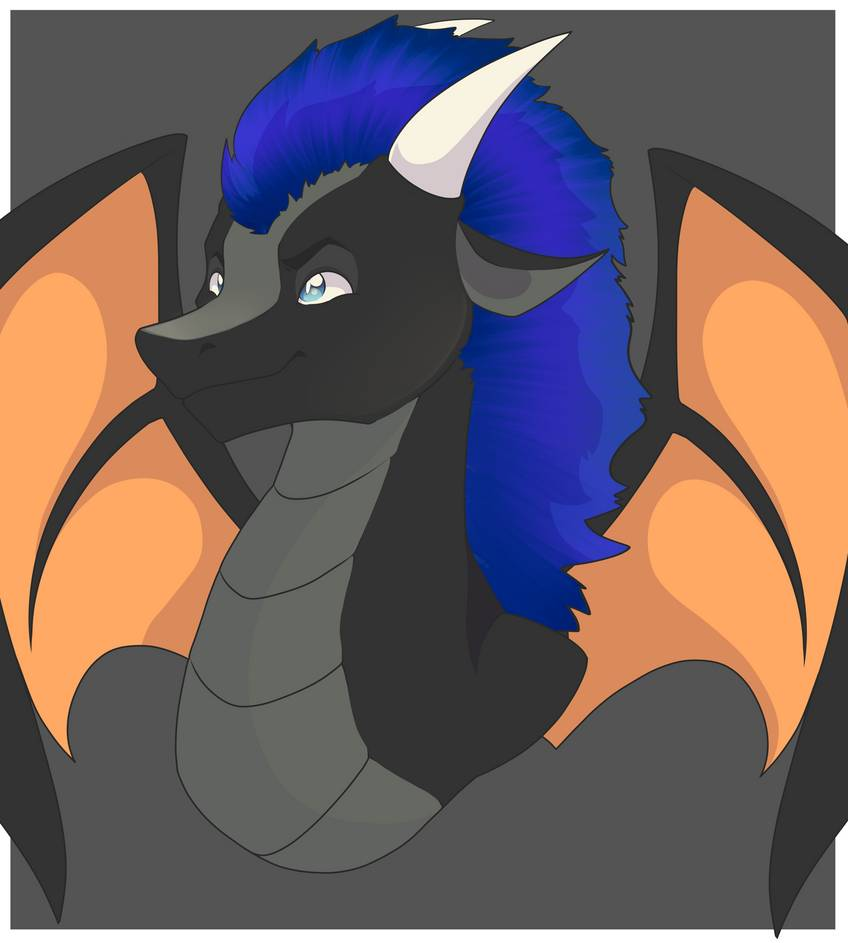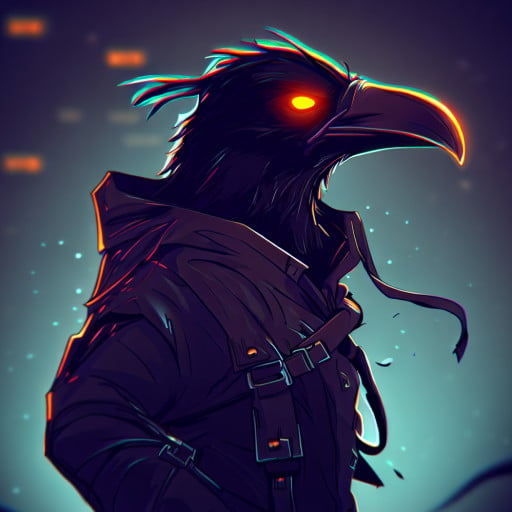The US Copyright Office offers creative workers a powerful labor protective.
oh sure fill the public domain with your garbage thanks
What if creates non original work? Like what if I just copies Mickey mouse and pretends it created it? Can it infringe in copy right? Or does that move mickey to the public domain
fuck mickey mouse. if it draws muhammad then actually you’re fucked
deleted by creator
And, conversely, when Disney horks some small artist’s work, Disney will out-lawyer them.
I see this turning to shit in a year or two. Maybe less.
This ruling seems to be really badly misinterpreted. The case wasn’t for people using ai tools to create works but from a computer scientist who created a completely autonomous tool and was trying to co-copyright the works with the tool. Copyright needs human involvement, how much human involvement is still not hard law, but if you integrate the output of an AI and integrate it into a larger work that is very much covered.
It took me a couple of clicks to discover that, as I suspected, this article is about the Stephen Thaler case. Thaler was trying to argue that the AI itself should hold the copyright for the images it generates.
This is both a ludicrous argument and irrelevant to the overall issue of whether AI-generated art is copyrightable. AIs are not legal persons, and only legal persons can hold copyright over someting. The result of this lawsuit is straightforward and expected.
Thaler was trying to argue that the AI itself should hold the copyright for the images it generates.
Was he going that far? As far as I understand it, he was trying to claim that the AI was the author of the work and that he should hold the copyright under the work for hire clauses/being the owner of the AI.
Plaintiff Stephen Thaler owns a computer system he calls the “Creativity Machine,” which he claims generated a piece of visual art of its own accord. He sought to register the work for a copyright, listing the computer system as the author and explaining that the copyright should transfer to him as the owner of the machine.
https://en.wikisource.org/wiki/Thaler_v._Perlmutter,_Memorandum_Opinion_(Dkt._24)
Calling the machine the “author” is what I was describing in different words. He’s saying “I didn’t make this, the machine made this.” The court’s saying “well, the machine can’t hold copyright, so if you’re saying you didn’t make this then there’s no one who holds copyright. With no one holding copyright, that makes it public domain.”
Just as corporations weren’t legal persons until about 13 years ago.
it’s in the name though
Is that why we are being told to “fear” AI? Because it can’t be easily monitised by those who worry about such things.
No, I don’t think so. The ability to monetize works created by AI is not impacted by this case - at least for most legitimate uses. Unlike what the title says the ruling of the case does not make all AI work uncopyrightable. Only states that AI work with no human input is not copyrightable and copyrighted works only apply to human creations. It leaves the debate for how much human involvement is required up to future cases as in this case there was no human input into the generated work (the person claiming the copyright even confirmed this).
So, all this case says is that you cannot claim copyright for owning or using an AI to create a work where you have no input into the process.
But even if you cannot copyright any AI generated work then you can still monetise it. You can sell works that are in the public domain, you can use and remix works in the public domain and (if different enough) you can claim copyright on that work. So at most this ruling shuts down some copyright tolls from doing no work and suing a bunch of people for infringing on their mass produced content that has had no human input.
The fear over AI is more because of the large unknowns about how it is going to be used and what damage it might do to society if used wrong. We are already seeing many people get into trouble for using AI generated content or answer to questions without verifying it at all. Even cases where lawyers have cited made up cases because they thought they could trust its output and were too lazy to actually verify the work. Or school boards banning books from schools based on the false output of questions posed to AI.
I concur with this rule
This is good. I don’t agree with copyrightable works by AI because I don’t agree with copyright at all, at least not as it currently exists. Patents, too.
It has always felt like a contrived game to me, but that game has far too much impact on peoples lives.
Copyright laws and parents IMO do have a purpose and in the current state of the world IMO something like them is needed. But their current implementations last vastly too long and give far too many protections to the owners of them.
Personally I would rather see a world with a UBI and thus no need for artists and inventors to need to profit of their works (without others being able to just steal and profit for them selves). If we had a UBI then IMO we could likely do away with the copyright laws for the most part.
But we don’t have that and artists/inventors do need to make a living. So some protections to allow them to do this are currently required. But they have been flipped to give large corporations far too much control and need a big revamp in how they work to rebalance them.
Also, this case does not make AI works uncopyrightable - only those that have no human input. So is not as big a deal as these articles are making it out to be.
Also, this case does not make AI works uncopyrightable - only those that have no human input.
This is really important. The particular case tried a very difficult argument, that works created by machine have copyright regardless of human input, which no serious copyright experts thought would work because it’s been pretty comprehensively litigated that human creativity is required
They also tried to argue the much more plausible theory that the prompt had creativity, and that the copyright flows down from the prompt to the AI-generated work, but the type of suit they brought didn’t permit that argument. That theory still needs to be litigated, and while I would be a bit surprised to see it work, it’s entirely possible it will. So I’m not ready to say all AI-generated work is PD just yet.
Of course, regardless of if what comes out of the AI is PD, you can make enough modifications to a PD work and create something you can copyright. Many people are doing enough “touch-ups” to AI art that the final product is potentially copyrightable. Amusingly, the better the generator, the less the human has to do here, and the weaker the protection becomes.
I am not sure that “touch-ups” are considered creative enough alterations to be able to copyright the resultant work. Minor touch-ups do not seem to be at least.
What is interesting is this copyright claim is far more damning for AI work than the case that all these articles going around are making. Though I don’t know if this has been tested in court yet.
it basically claims that since AI generated images are hard to predict there is not a strong enough chain between the prompt and the result that shows you have enough of an influence over the generated image. And that generating lots of images until one matches what you envisioned is also not good enough, like how searching the internet for an image that matches what you envisioned does not give you copyright over it.
It also shows that minor alterations are not enough to claim copyright on the image.
it basically claims that since AI generated images are hard to predict there is not a strong enough chain between the prompt and the result that shows you have enough of an influence over the generated image. And that generating lots of images until one matches what you envisioned is also not good enough, like how searching the internet for an image that matches what you envisioned does not give you copyright over it.
Interesting, isn’t this a direct consequence of knowing the general procedure a generative AI follows but not the individual steps it takes or works it leverages? If there was proper sourcing at every step you could actually have control and finesse on the output. But because the specific actions aren’t documented, you’re unable to move the algorithm in a specific enough direction to claim ownership.
If you compare that with working with artists you also wouldn’t claim you created the result. Even when you give meticulous instructions to the artist, as many clients do. The artist still owns the art unless you have a contract and specifically buy the rights to the result off of them.
I think perhaps that’s what they are trying to encapsulate with the law.
If we had a UBI then IMO we could likely do away with the copyright laws for the most part.
Most UBI proposals would not really help with that. Most UBI, when combined with other social programs, means a general “safety net” for people to barely subsist, rather than thrive if they are trying to build a living out of it. It’s mostly envisioned as an emergency living, maybe bridge someone to get education, or to complement minimum wage type of work to bring it up to a respectable standard of living.
Copyright is outrageously long, anyway. Seriously, who benefits from works after the creator is long dead? AI works won’t ever replace a human’s level of ingenuity, creativity and imagination, let alone at the spur of the moment. That being said, what it does interrupt based on what we ask from it can be fresh and aid in the development or adoption of ideas we may not have thought of before. Being in the public domain is the best outcome.
Seriously, who benefits from works after the creator is long dead?
Those that lobbied to increase the duration of copyright - the mega corps that have sucked up a whole bunch of copyrighted works and are tightly controlling it to squeeze as much money out of it as they can.
Wow this is huge. Let’s hope it holds up to years and years of legal threats from lobbyists
Cool. Now someone needs to invent an application that can listen/watch/look at some media (movies, songs, books) and create something nearly similar.
Thats not really what that ruling was, in the case the AI created, and if i remember correctly also published, the work with no human intervention, making it hard to apply to pretty much any normal ai generated content.
So, if prompting is considered as human intervention, the whole ruling is absurd?
From the case itself:
Undoubtedly, we are approaching new frontiers in copyright as artists put AI in their toolbox to be used in the generation of new visual and other artistic works. The increased attenuation of human creativity from the actual generation of the final work will prompt challenging questions regarding how much human input is necessary to qualify the user of an AI system as an “author” of a generated work, the scope of the protection obtained over the resultant image, how to assess the originality of AI-generated works where the systems may have been trained on unknown pre-existing works, how copyright might best be used to incentivize creative works involving AI, and more.
So the question of how much human input is needed is still up for debate. I doubt any prompt will pass the creativity mark, but I suspect with a creative enough prompt you will likely be able to claim copyright and author ship over the works.
This case did not explore either of these ideas, only that you cannot claim the AI as the author and thus claim copyright via the work for hire clause in the copyright laws if there is no human input into the process.
This ruling IMO makes sense and is inline with other cases (such as photos being taken by an animal with no human input are not copyrightable). And IMO this is a good ruling - makes it harder for large numbers of images to be copyrighted on mass by companies or companies that own the AI claiming copyright over works their AI generated (even if the prompt was given by others).
I suspect with a creative enough prompt you will likely be able to claim copyright and author ship over the works.
It seems that’s not the case, no matter how much effort or time you expend on the prompts. This is from the Copyright Office:
The Office does not question Ms. Kashtanova’s contention that she expended significant time and effort working with Midjourney. But that effort does not make her the “author” of Midjourney images under copyright law. Courts have rejected the argument that “sweat of the brow” can be a basis for copyright protection in otherwise unprotectable material.18 The Office “will not consider the amount of time, effort, or expense required to create the work” because they “have no bearing on whether a work possesses the minimum creative spark required by the Copyright Act and the Constitution.”
Here’s another key factor:
Because of the significant distance between what a user may direct Midjourney to create and the visual material Midjourney actually produces, Midjourney users lack sufficient control over generated images to be treated as the “master mind” behind them. The fact that Midjourney’s specific output cannot be predicted by users makes Midjourney different for copyright purposes than other tools used by artists.
This only applies to an image generated with AI prompts that isn’t be significantly altered by an artist.
That is a far more interesting read and more damning than what all these article are talking about - the Thaler v. Perlmutter case.
This is a lot more relevant to most people’s workflows, but even it reads like it wouldn’t apply to someone using processes that allow them more control, e.g., a Stable Diffusion workflow using multiple iterations; ControlNet with author-created posing; in-painting with directed img2img prompts for additional control; additional directives that restrict the creative output in a particular domain, e.g., the palette or lighting type, to an author-provided set; and most of all, AI-free post-processing.
If I understand correctly, that means this is setting precedent for the extreme without human intervention. So any other wrinkles must be decided in precedent from other cases on a gradient between “AI made” and “human made”
I would say the precedent is already set, like with the cases where animals have taken a selfie - works like that created without human input or involvement are not considered copyrightable. And an AI is not a human. So this case is just confirming this precedent for the case of pure AI generated work (ie that without human input).
@nous I figure a judge wouldn’t count prompts because they are basically commissions. If you commission an artist to create a piece for you, it’s still their piece. If a corporation commissions the artist to create the piece, they can own it as work-for-hire, which is EXACTLY what Thaler was trying to claim in this case, but they aren’t the creator.
If you can replace “AI” with “Professional Artist” and you wouldn’t be eligible for your amount of input, then it’s not copyrightable.
There is a difference here between an AI and a “Professional Artist”. In the case of the Professional Artist they are the closest thing to the art that is considered human input. But in the case of the AI generated work - it is the prompter. In this case the AI is more like photoshop or a camera than it is a Professional Artist.
At least there are arguments that can swing this both ways. Only a court would be able to decide for sure. But I am not convinced that it is a slam dunk case in favour of making AI generated works uncopyrightable.
You might think of it this way - if you hire a photographer, and let them take some photos of something letting them have control over the process, then they will likely have a claim over the copyright.
But if you guide them on everything - from setting up the objects in a scene, to the lighting, to the settings on the camera and everything else to the point all they are doing is clicking a button on the camera - then who has the claim in that case? It is a far less clear cut case. I could see courts leaning towards the person with more of the creative input into the work than the one who simply took the picture. As it is the creative process that is important, not the one that pushed a button. Though typically the one pushing the button is also the one with most creative input into a photograph - so this case has not come up as far as I know.
The case is harder to make with an painter though as the process of painting I think would be considered a substantial amount of creative input - much more so than taking a photo. Even if they were fully prompted by someone else.
But with an AI, I think it would be more similar to that of the photographer than a painter. So I figure a judge would count a prompt - as that is the most human involved creative part of the process. Much more so than the case of the photographer or a painter.
Don’t forget that there can be multiple independent copyright claims. In the example of the painter, both the painter and the commissioner can own copyright to their respective contributions to the result.
That’s thing, though. That’s the question the court is answering. It says that the closest human is STILL NOT CLOSE ENOUGH if they aren’t doing the same level of control and work as a human would be doing if they gave them the prompt.
If you use an AI as just another tool, that’s one thing. But just giving a prompt is NOT creating art.
This article was talking about the Thaler v. Perlmutter case - which Thaler confirmed
that the work “was autonomously generated by an AI” and “lack[ed] traditional human authorship,” but contesting the Copyright Office’s human authorship requirement and urging that AI should be “acknowledge[d] … as an author where it otherwise meets authorship criteria, with any copyright ownership vesting in the AI’s owner.”
So he was never trying to claim that he created the work or had any involvement in its creation at all. Only that he as the owner should get copyright over the work. As far as i can tell his AI generated the images without any prompt at all. So this case does nothing to further the argument over how much a prompt can be considered creative works. So none of the articles based on this case are doing any justice to what this case represents.
Though I have just been made aware of this copyright claim that does a far more damning case for prompts not being considered creative enough to be able to claim copyright. Though I don’t know if this has been tested in court yet.
TLDR write a creative poem as an input
100% agree with this, simply giving a prompt to an artist doesn’t give you any leverage as far as copyright goes so why should it for AI?
Does that mean I could still own the rights to a work of fiction created by an AI because I prompted it? How much human invention has to actually be there?
How much human invention has to actually be there?
This is still up for debate, from the case in question:
Undoubtedly, we are approaching new frontiers in copyright as artists put AI in their toolbox to be used in the generation of new visual and other artistic works. The increased attenuation of human creativity from the actual generation of the final work will prompt challenging questions regarding how much human input is necessary to qualify the user of an AI system as an “author” of a generated work, the scope of the protection obtained over the resultant image, how to assess the originality of AI-generated works where the systems may have been trained on unknown pre-existing works, how copyright might best be used to incentivize creative works involving AI, and more.
It’s a shame that Cory Doctorow of all people seems to have misinterpreted this. And that he is using Medium to deliver this story.
This is going to quickly put the kibosh on companies trying to leverage AI for all their creative work. Not that I think AI can do a good job at it, but still. Companies won’t use AI if what it creates can’t be monetized and I think if it enters the Public Domain it can’t be, if I am not mistaken.
It can be… But others can monetize it too
Yeah sounds like communism (aka not a monopoly so they can juice every dollar out of it while pushing “updates” that are as useful as the win 11 change)
You can’t use legal force to have a monopoly of distribution, thus you can’t charge people at that point (as others can redistribute it). You can however do it patron style and get paid before production. Not as much money in it when you have less control but I think that’s better than artifically making the digital work scarce in the age where copying is easy.
No, it just means that a bunch of lawyers are going to get rich. They will force judges to legislate exactly what amount of human input is necessary for a work to be copyrightable, and there will be endless lawsuits arguing whether particular pieces of work have enough human creativity in them. Big companies aren’t going to let something like this stop them.
Not necessarily. I recall one of the big issues was an animation studio using AI generated backdrops, but still drawing the critical elements in the scenes. So you need something convincingly “foresty” in the background but don’t care about the details, you start there, and then maybe carve out some path for the characters to be in and do the actual specific work there.
If the studio found out that people could freely rip off their backgrounds, I doubt they would care. There’s a lot of “don’t care” creative work that has to be done to fill out the context around actual core creative works. Also lots of room for, say, one 3D model to be created and using some AI-enhanced version of “palette-swapping” to create diversity in mobs without actually doing work. The derivation may not receive additional copyright protection, but the base model that was altered would be covered, so attempts to rip-off the AI mutated model would still hit the base model’s protections. Even in constructing creative works that matter, you get to a basic design and then have AI take it away (coloring, rigging, animation might be AI enhanced beyond automation tools can provide already).
Congratulations, you no longer have any ownership of AI generated deep fakes of yourself, these are now public domain.
Oh man… I don’t even know how to tackle the legislature needed to handle AI content correctly, but I can tell you that the dinosaurs in office have even less of an idea. If we continue the path of corporations paying off politicians, which doesn’t seem like it has an end in sight… We are about to have some new problems that 5 years ago nobody even thought of.
I miss the old internet. Shit has gotten way out of hand and there is no stopping it.
You don’t own a photo someone else made of you IRL either. Personality rights are closer to trademark.
This is more about control of distribution than outright ownership. You can’t control the distribution of AI generated likenesses of yourself because they are now public domain, a photo someone takes is not public domain and not commercialisable without a release from the subject.
Personality rights are not copyright. At all. It’s just that simple. Entirely different branch of law, enforced at an entirely different level in the US (state-specific instead of federal). Something can be totally free of copyright while also still being illegal to distribute for entirely different reasons.
Is it illegal to distribute AI generated likenesses of a person?
That’s a somewhat unknown subject given the way personality rights are written across the globe (they are not consistent and some are built on an invasion of privacy scenario only). Deepfake porn lives in extremely muddy largely-untouched ground. But if it is illegal, it would simply never happen under copyright law, and this ruling does not affect it.
Let me put it this way: If I break into your house and film you doing whatever then post it on YouTube, it’ll end up getting me penalized for breaking and entering, property damage, violation of privacy and who knows what else; probably a huge laundry list that’ll land me locked up for a good chunk of time and you’d win on all those counts. But one you’re extremely unlikely to win is copyright, unless I happen to film something like some piece of art you’ve made yourself in the process.
It seems the point is moot, the article was editorialised, the ruling didn’t make AI generated material public domain. It just stated that AI couldn’t be the copyright holder for the created materials.
At least in the USA: You absolutely can control the distribution of your likeness if it wasn’t taken in public.
Photos of you in public can’t be controlled because you have no reasonable expectation of privacy in public. If someone takes a picture of you privately, even if not for commercial purposes, you can absolutely control the use of that image unless you release it.
But your AI generated likeness is now public domain, so explain how you have control over it’s distribution, it’s ok, I can keep repeating myself till everyone catches up.
You can keep repeating yourself all day long; it’s clear you only read the clickbaity headline and not the article that clarified creative credit and copyright can’t be owned directly by an AI. Your entire premise is wrong.
Yes, it is. But if it wasn’t I’d still be right.
You do own your own likeness, though. So I think you probably have some right to prevent someone from making deep fakes of you.
You don’t own your AI generated likeness, it’s public domain.
Just because (autonomous) ai works cant be copyrighted doesnt mean it cant infringe on copy right.
But it does bring to mind who would be the offender?
You can’t counter someones argument by just saying the same thing you know. He brings up a good point as you can in fact argue your likeness in court.
This would likely require a court case but chances are the AI law would have to offer an exception to it.
There’s a nuanced difference between owning your likeness and owning your AI generated likeness, it will now be up to the courts as to which rights supercede the others and until then the law will be abused.
You effectively no longer have any guaranteed control of the distribution of your AI likeness.
“there’s a nuanced difference between owning your likeness and owning a drawing of your likeness…”
We’re talking specifically about AI generated content because that’s what the court case in the article ruled on, stay on topic. You just proved you don’t understand the nuance I’m talking about.
You just proved you don’t understand the nuance I’m talking about.
Translation: “I don’t have a rebuttal for your argument so I’m going to pretend it’s off topic.”
If you actually had an argument to make you would explain how the nuance was misunderstood and clarify what you meant. “You clearly don’t understand” just screams that you don’t have any foundational arguments for your claims.
You want to us to stay on topic?
Judge Beryl A Howell of the DC Circuit Court upheld a US Copyright Office ruling that works created by “AIs” are not eligible for copyright protection.
A work not being eligible for copyright protection does not mean it nullifies existing protections. If someone uses AI to generate an image of Ronald McDonald punching Mickey Mouse in the face and tries to sell it on a shirt they will get sued by both McDonald’s and Disney and they will lose easily.
“The courts have declared I don’t own the copyright for this” is not a defense for using protected images.
You can’t counter someones argument by just saying the same thing you know.
Sure you can. You can also win any argument by replying “no you”. You just don’t leave a very good impression if you do that.
He brings up a good point as you can in fact argue your likeness in court.
This would likely require a court case but chances are the AI law would have to offer an exception to it.
It’s probably just going to fall under existing law and the owner of the AI replaces the owner of the copy that was made (so same laws, no exception). Not sure what law that is exactly, but I assume it involves royalties and the like and there’s an exception for certain things, like news and maybe art.
Here’s an article on it from the perspective of painting. I don’t see why it would any different if it’s an AI “painter”. It’s still technically painting what it does.
Copyright is not ownership. You can own something, but not hold the copyright to it.
Personality rights are also not copyright and as the ruling was not about personality rights, it did not affect these rights (where they exist in the US). Disregarding both AI and the recent ruling, if someone takes a photograph of you, you do not hold the copyright to it, the photographer does. If the photographer then does something with that image that harms your reputation you may be able to sue.
And no, it is unlikely that there is a distinction between one’s likeness and “AI generated likeness,” it usually doesn’t matter if you use a photograph or a drawing of an individual, it is the identity that is protected regardless of what tool was used.
“Any resemblance to actual persons, living or dead, or actual events is purely coincidental.”
I can commercialise your AI generated likeness freely under the new laws.
This is on the same level as “You can rob a store then when the cops come to your house say you were never there. They can’t arrest you if you weren’t at the scene of the crime.”
Lying is not a legal defense.
Gotta prove it.
So you admit that I do own my likeness now?
Depending on the jurisdiction, you never had those rights. In Australia anyone is free to take your picture in (or from) a public space. The only issue is when that photo is used to damage the subject - and that is done under defamation laws. In the US the photographer owns the rights to a photograph unless there are other contractual stipulations - even if you are the subject of the photograph.
deleted by creator
AI is a tool. People use tools to create. This is like saying that everything that uses ink is public domain.
I get that there is an issue with people using AI to create highly derivative product and profit off of the original “inspiration’s” notariety and skill - but this isn’t the solution.
Did you read the article or any others about it? Human creativity is the heart of copyright law. If humans didn’t make it, no copyright. At least under the latest ruling.
I think you missunderstood. What they’re saying is using AI is still based on human creativity. A human comes up with a creative idea and uses a brush or an AI to visualize the idea. This opinion is built on belief that creative thinking is the heartof art and is more important than the physical process of crafting, the technique one uses to express the idea. There can be duscussions about that, of course.
That isn’t what this article is about, ironically.
This particular lawsuit was about an attempt to assign copyright of an AI-produced work to the AI itself. Which obviously didn’t work because only legal persons can hold copyright. There was no ruling about whether “human creativity” is relevant, it’s just about whether an AI can be a rights-holder.
It’s not surprising you don’t know what the article is about, though, it’s a terribly written clickbait article that’s based on another terribly written clickbait article. You should look up the case that’s actually being talked about, Thaler v. Perlmutter. This Reuters article is a bit more just-the-facts about it. A key quote:
Thaler applied in 2018 for a copyright covering “A Recent Entrance to Paradise,” a visual artwork made autonomously by his Creativity Machine system. Thaler’s application named the system itself as the work’s creator.
It’s that last bit that makes this case basically irrelevant. Thaler didn’t claim copyright himself, he tried to argue that it belonged to his machine. Like a photographer trying to assign copyright to his camera.
Thaler didn’t claim copyright himself
Except he did. He claimed the AI was the author of the work and tried to use the work for hire clause to claim the copyright himself because he owned the machine that created it.
and explained the work had been “autonomously created by a computer algorithm running on a machine,” but that plaintiff sought to claim the copyright of the “computer-generated work” himself “as a work-for-hire to the owner of the Creativity Machine.”
The work is not copyrightable as it was produced without human input.
The Copyright Office denied the application on the basis that the work “lack[ed] the human authorship necessary to support a copyright claim,” noting that copyright law only extends to works created by human beings.
Like a photographer trying to assign copyright to his camera.
As far as I know that photographer tried to do the same thing here - claim copyright himself, not get his camera to claim the copyright. But again, there was no human input into creating the works and owning the camera is not enough for claim copyright.
He claimed the AI was the author of the work and tried to use the work for hire clause to claim the copyright himself because he owned the machine that created it.
That’s two separate steps. First claiming the AI holds the copyright as the author, then that it’s assigned to him because he “hired” the AI. The court said the AI can’t hold the copyright, so step one fails. Step two never comes into play as a result. Since Thaler specifically said that he wasn’t the author, that left the court with no choice but to shrug and say “guess that means there is no author, and therefore no one holds copyright.”
If Thaler had said “I am the author of the work and I used the AI as my tool to create it” that would have been an entirely different matter.
As far as I know that photographer tried to do the same thing here
There was no actual photographer, or if there was it’s a coincidence - I made that up as an analogy.
There was no actual photographer, or if there was it’s a coincidence - I made that up as an analogy.
Oh, I thought you were referring to this incident:
https://en.wikipedia.org/wiki/Monkey_selfie_copyright_dispute
Which has similar parallels to this case.
Ah, yes, I should have thought of that. I’ve actually referenced it in other discussions like this one. Sorry about the confusion.
That case does show how minimal the human involvement needs to be before a human can claim to be the “author”, if the photographer had intentionally allowed the monkey to take the camera then he could probably have claimed copyright over those photos. As I recall the case ended up hinging on the fact that he hadn’t wanted the monkey to steal the camera, so none of the photos that it took with them were a result of a decision that he had made.
PETA’s monkey selfie case was a separate one where they tried to argue that the monkey should be the copyright holder, and I think that one’s most closely analogous to Thaler’s case here. Both were doomed because neither monkeys nor AIs are legal persons.
I too believe that AI work should be public domain by default.
If there were a machine on the street corner where pushed a button and a macguffin popped out, you don’t deserve credit for the macguffin.
If you entered parameters into the machine on the street corner and pushed a button to pop out a custom macguffin, you may be able to argue that you deserve credit for the parameters, but not the macguffin itself AND FURTHERMORE if anyone else wrote custom parameters that happened to produce an identical macguffin without ever having read your parameters, they have exactly as much right to gatekeep it. which is to say basically none.
I’ll go further. I believe all works should be public domain by default. And copyright law should go back to what it was- if you want to, you can register copyright for 19 years with an option to renew at the end of those 19 for another 19. 38 years is more than enough time to be the sole earner from intellectual property rights.
you know what HELL YEAH
I would support the fuck out of that
I’m too used to being surrounded by people who constantly push back on it.
As a creator of some digital content in the past (keep wanting to get back into it but, you know, life gets in the way) I was plagiarized and I felt flattered when it happened.
When people get pissy about it, well, that’s a skill issue and they need to GIT GUD.
Ideally, some sort of universal asset tracking and attribution system would be nice so that the distribution of compensation could be automated. People who invent something oughtta be due SOME credit, but not full control.
I want everyone to have the inaliable RIGHT to create derivative content as long as if they generate any income from it a tiny portion of it gets sent ‘up the line’ toward whatever it was derived from.
I want people to be able to make original animations with “Disney characters” and get to keep at least 85% of what anyone is willing to pay them without Disney being allowed to take, or CAPABLE OF taking, even one goddamn penny more than that.
I want people to be able to create custom content for Warhammer 40K and Games Workshop to be utterly POWERLESS to stop them.
I want networks to never be allowed to nuke content libraries ever again.
I want media that’s literally rotting away, disintegrating into nothing as the celluloid it’s printed on oxidizes and crumbles into literal dust, to never be lost again.
As a creator of some digital content in the past (keep wanting to get back into it but, you know, life gets in the way) I was plagiarized and I felt flattered when it happened.
Same with me. Someone took one of my monetized YouTube videos and put it in their laugh reaction video. Cool. More people get to see my video and hopefully laugh. If you’re into an art form for the money, maybe you need to rethink why you’re doing it.
If you’ve spent some time with AI already you’ve probably realised that it takes some level of domain-specific information to get AI to produce a useful output. For example, people who are already artistic are better at getting artistically interesting images out of an AI. The idea and the guidance have value and are essential to the outcome. Prompt engineering is a very real skill.
Now this case is about an autonomous tool, which by definition doesn’t include a human’s guidance. I agree that the waters here are definitely murkier. If however, you put a blanket over all AI-assisted works and say that the author/engineer doesn’t deserve credit, or protection, then I think you’re off the mark.
Hard disagree, there is a near certainty that any work produced from a current generative “ai” model includes material scraped from the web in violation of the release license.
Whatever skill they apply, it’s still by default an unlicensed derivative work.
Credit? Sure, whatevs! Copyright, royalties or ownership? Absolutely not.
It’s going to raise some interesting issues when a studio decides to commision an AI programmer / artist to feed AI some exacting prompts to closely reproduce someobe else’s copyrighted work.
There are still genies at large out of their bottles wreaking havoc.
The funny thing is hobbyists might be able to do the same thing given that we currently have access to very effective AI tools.
It will also raise questions if an editor goes over AI created material and makes changes. Does he get to copyright it?
Personally, I think no IP law is better than the system of IP laws we have (about which judges routinely make bad rulings out of ignorance). So I’ll be glad to see it broken. I creative commons my own stuff anyway.
It’s going to raise some interesting issues when a studio decides to commision an AI programmer / artist to feed AI some exacting prompts to closely reproduce someobe else’s copyrighted work.
What is the difference if they hire someone to use photoshop to reproduce someone else’s copyrighted work? Why would a case involving an AI be any different? Just because you create something and release it to the public domain does not mean you have the right to actually do that if what you created violates copyright.
It will also raise questions if an editor goes over AI created material and makes changes. Does he get to copyright it?
Same question can be applied to any public domain works. AI generated or not.
But also the articles title is wrong, AI generated works are not uncopyrightable - only ones that don’t involve any human input (much like any other work that does not involve any human input).
Personally, I think no IP law is better than the system of IP laws we have (about which judges routinely make bad rulings out of ignorance). So I’ll be glad to see it broken. I creative commons my own stuff anyway.
I agree with this though. But this case does not break the system at all. It just re-enforces precedents that have already been established for non ai works - in that a human needs to be part of the creative process for the work to be copyrightable. Articles reporting on this case are just going for the most clickbait title they can.
Consider the case of photography then - would you consider photos to not be copyrightable as all the photographer did was point a camera at something and push a button? The picture was not created by the photographer - just the output of light entering the machine and hitting some photosensitive paper (or a digital sensor these days). How is that any different from you macguffin maker? Or An AI generated work?
There have been many cases for photographs though - with mixed results. Namely the line is drawn when some level of human creativity is involved in the process of creating the works in question. Like in the case where a money took a selfie - that work was not copyrightable as there was no human input into the process. Just owning the camera is not enough to claim copyright. But there are other photographs are are considered copyrightable.
The case this article talks about is more akin to the money example - someone used an AI to create an image with no human input (and he admitted to this) and tried to claim copyright on the work as part of the work for hire clause to the copyright laws. The claim was shot down because no human input was part of the process. So this image was not copywritable.
But all the articles about this case are extending the judgment to mean any ai generated work falls under the same cause. But it does not as different AI work have different amounts of human involvement in the process. The case explicitly states that those works are still open for debate.
The increased attenuation of human creativity from the actual generation of the final work will prompt challenging questions regarding how much human input is necessary to qualify the user of an AI system as an “author” of a generated work, the scope of the protection obtained over the resultant image, how to assess the originality of AI-generated works where the systems may have been trained on unknown pre-existing works, how copyright might best be used to incentivize creative works involving AI, and more.
Things are not as clear cut that the titles these articles are using imply. And if a prompt is enough, or how detailed it would need to be to claim copyright is still an open question that as far as I know has not been tested in court yet.
The skill of a photographer is in the curation of the work.
They are credited with the framing, the positioning, the timing, the settings they used on configuring the camera.
If someone else went to the same location, attempted to frame it, position it, time it, and configure the camera themselves, even if the resultant picture somehow managed to come out identically to the first one - hell, even if they used the same actual physical camera - the photographer who took the first picture has no rights or claims over this new albeit hypothetically identical photograph.
Third example:
If a photographer set up a permanent camera at a location that already had the scene framed, all elements within the frame positioned, all settings calibrated and locked-in, and somehow even managed to make sure that the timing was always perfect every time someone came up and pressed the shutter button, ALL the work was still done by the photographer.Fourth example:
If an AI algorithmically calculated all of these aspects and robotically configured a camera’s settings, then used a drone to deliver and orient the camera precisely to achieve the framing and scene composition as determined by the algorithm, then were to schedule the exact optimal moment to trigger the shutters each time a human pressed a button, that human would have no claims or rights over the resultant picture and it ought fall directly into public domain.That third example is a grey area. The photographer has no control over the subject of the photo, which is arguable a large part of the creative part of the photo. I am not convinced that they would automatically get copyright in that situation.
And the third and forth touch on a lot of points that modern smartphones already do - automatically set up the camera, can adjust the frame of the photo, take several pictures and blend the best ones together, stabilise the shot, auto adjust exposure etc etc. When does taking a photo with your smart phone end up being like those examples?
But regardless, this copyright claim has some good arguments for why a prompt for an AI generated image should not result in the image being copyrightable - far better then the case the article in this post points to.
The core of the argument seems to be that you cannot predict the output of the AI, so the prompts are more suggestions and not strong enough to be considered creative enough for a claim to copyright. And that generating lots of images until one matches your idea is also not enough - as that is like doing an image search until you find something that matches what you want.
Which feeds back into that third example, if the photographer cannot predict what the people will do in the frame then given the above I would argue they have a weak claim to copyright over the image. No matter how much work they did to set up the shot.
Ehhhh. This isn’t as exciting as you might think for, say, graphics. It’s predicated on the fact that in the case, there’s no human involvement.
Howell found that “courts have uniformly declined to recognize copyright in works created absent any human involvement,” citing cases where copyright protection was denied for celestial beings, a cultivated garden, and a monkey who took a selfie.
“Undoubtedly, we are approaching new frontiers in copyright as artists put AI in their toolbox to be used in the generation of new visual and other artistic works,” the judge wrote.
The rise of generative AI will “prompt challenging questions” about how much human input into an AI program is necessary to qualify for copyright protection, Howell said, as well as how to assess the originality of AI-generated art that comes from systems trained on existing copyrighted works.
But this case “is not nearly so complex” because Thaler admitted in his application that he played no role in creating the work, Howell said.
They’re just gonna nail down the line judicially on how much human involvement is required and then they’ll have a human do that much.
I mean, AI tools are gonna be just increasingly incorporated into tools for humans to use.
It might be significant for something like chatbot output, though.
Exactly so let’s say in the future you get a 3d model from an AI. You put a human to work on it 2-3 hours, change some things around and then you can copyright it.
The thing is, all the inputs to the LLMs and Stable Diffusion/DALL-E models are scraped from internet stuff anyway.
I sincerely hope that somebody who released material under GPL is able to prove that they incorporated it into their model. You know it happened.

